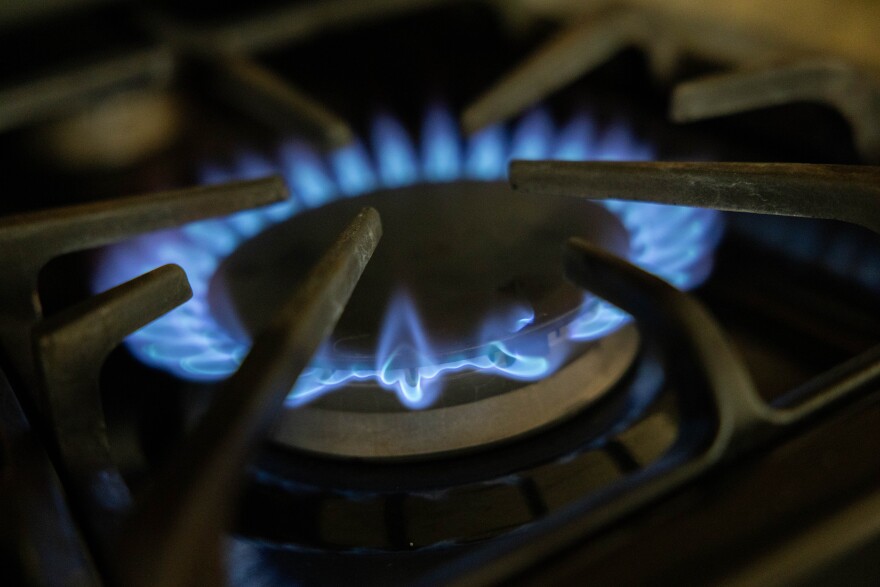Texas Gas Service, the for-profit utility that supplies Austin homes and businesses with natural gas, has announced plans to increase gas rates by almost 10% on average.
The change, which would undergo review by state regulators if not approved by Austin City Council, would pull an extra $41 million in revenue, according to Thomas Brocato, an attorney contracted by the city of Austin.
The requested hike comes after new rates went into effect in January that pushed costs up by around 15% on average, according to Texas Gas Service, and after a bump in customer charges this summer by around $3 a month.
“This is the third rate increase that TGS has filed this year,� Brocato told Austin’s Resource Management Commission on Tuesday.
Texas Gas Service has said the rate hikes are needed to keep up with the rising cost of doing business, ensure reliability of service and increase financial assistance programs. Critics have accused the utility of overcharging.
Brocato said the newest proposal would have “different impacts� on customers depending on how they are classified by Texas Gas Service.
For example, the proposal would raise fixed fees called “customer charges� by about $6 a month for “large residential� customers who use more gas. Those charges would go up by more than $8 a month for “small residential� customers who use less gas.
At the same time, rates charged by volume for gas delivery would drop for all residential customers.
According to Brocato filed with the city: “The impact of this change would be an increase of $3.94 per month for small residential customers, and a decrease of $2.99 per month for large residential customers.�
Brocato said the changes would result in small residential customers seeing average monthly bills of $48.82 when the cost of gas is included. The average bill for a large residential customer under the new rate structure would be $74.30.
On Tuesday, members of the Austin’s Resource Management Commission pointed out that the proposal favored customers who used more gas, going against the city’s efforts to incentivize conservation.
“As if the rates were not bad enough, they decided to pile it on and make them even more regressive than they were,� Paul Robbins, longtime critic of Texas Gas Service said.
Other changes in the proposed rate
Traditionally, utilities have charged different regions different rates because of the varied costs associated with delivering gas to different parts of Texas. The new plan proposes to consolidate Texas Gas Services� four different service areas in Texas into one, so that the utility may charge similar rates across the state.
Texas Gas Service also wants to require customers to contribute into a fund called “share the warmth� that pays for overdue gas bills.
Under Austin's existing rate plan, those contributions are voluntary and matched by Texas Gas Service shareholders. Brocato said it is unclear whether shareholders would continue to pay into the fund under the new proposal.
In an email to KUT a spokesperson for the utility said, "Texas Gas Service will continue to match a portion of customer donations."
Those proposals also elicited criticism.
“These charitable programs are essentially a revenue protection program for the company,� said Commissioner Alison Silverstein. “The company ends up with the cash. It's good for the people who don't get disconnected. But the level of charity is a little iffy.�
City Council will review the rates
Austin City Council plans to take up the proposed rate changes at its meeting on July 24.
Under Texas law, the council can vote to suspend the new proposal for 90 days while it reviews the rates. Marija Norton, the city controller, said the council is expected to do that.
If the city does not accept the new rate structure, Austin and other cities served by Texas Gas Service, may try to negotiate a settlement agreement.
If Texas Gas Service and the cities it serves cannot agree on a settlement, the rate case may be contested at the Texas Railroad Commission, where state regulators would have the final authority over the new rates.
Austin City Council has been highly critical of Texas Gas Service since last year’s rate increase.
Some council members have suggested Austin partner with a different private gas company, or try to run a city-owned gas utility when its contract with Texas Gas Service expires in 2026.
Correction: An earlier version of this story said that Texas Gas Service's new rate structure would increase it revenue by $41 million from Austin area customers. The utility estimates the changes would increase revenue by $41 million from all Texas customers under its proposed new consolidated service areas. The story also stated the volumetric charge for gas would increase for small residential customers under the proposal. While rates are expected to rise for small residential customers, the volumetric charges would decrease.





